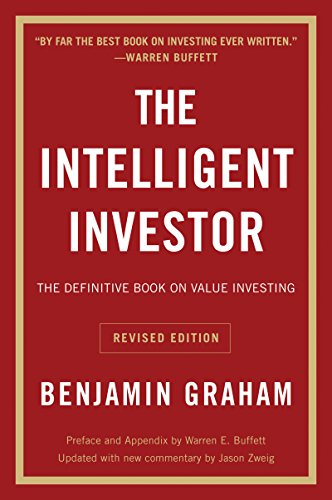Warren Buffett is the most successful investor on Earth. Not only has he declared record high returns, but he’s also managed this over a period of more than 60 years. But is there any chance to reach the same heights? Yes, if you follow the famous “Warren Buffet’s rule!”

The intelligent investor
by Benjamin graham
⏱ 14 minutes reading time
🎧 Audio version available
The “5/25 Rule” is a testament to Buffett’s ability to think long-term. Not only he thinks about his finances 24/7, but Warren also spends a great deal of time considering how we can live better. And the “5/25 Rule” came out of a simple anecdote.
One day Buffet approached his pilot, Mike Flint, after realizing that Flint had worked for him for the past 10 years. He wanted to discuss Flint’s career goals and how Warren could help him reach them.
“Since you’re still working for me, something tells me I’m not doing my job,”
Buffett jokes.
To outline his goals, Flint was asked by his employer to try a simple exercise. It would revolutionize the way he viewed his priorities.
But let’s imagine you are this pilot, and you are working with Buffet. So, get your pen and paper, and get ready for an exercise.
The first step of the exercise is to list down 25 things you want to accomplish in your foreseeable future. But remember – nothing is off the table. Consider every last thing you ever dreamed about and always wanted to achieve and create a list of those annoying things that you always think about.
When your list is written, try to rank them in order of importance and circle the top five. Prioritizing goals is undoubtedly more complex than just listing them, so, to make it easier for you, just circle the top five without prioritizing them. That should be enough.
Now comes the most challenging part of the exercise. Buffett asks you a simple question: “what are you going to do with the remaining 20 items?”
So, you probably consider the top five are your primary focus, but the other twenty still matter. Of course, they are still important and should be done someday, so you’ll work on those intermittently as you get through the top 5. The last 20 are not so urgent, but you should still give them a dedicated effort.
Hearing your thoughts, Buffett’s expression changes a little.
He responds sternly:
“No. You’ve got it wrong. Everything you didn’t circle is your Avoid-At-All-Costs list. No matter what, these things get zero attention from you until you’ve succeeded with your top 5.”
Avoid at all costs? You didn’t expect that, right?
There’s more fight for our attention than ever.
Choices have never been more plentiful, and it’s unlikely we’ll be constrained anytime soon. In fact, our options only expand as we advance further into our careers.
It’s the main reason why most of us will never reach the level of competency needed to become a superstar. Every time we pursue a new course of action, we provoke an opportunity cost. It steals our time and attention away from the things that are most valuable to us.
Your odds of success grow when you direct all your focus into a singular pursuit. You’ll have to avoid some things and rack up hours trying to get good at it.
Consider how a craftsman becomes a master. Craftsmen often start off as assistants to a master and spend years studying the basics. Then, they become journeymen, where they attach their own style and tastes to create work with slight nuances. That’s how they ultimately attain mastery.
They don’t get distracted by trending fads or jump from one interest to another. Spending all their time on a singular goal helps them get the essential things done.
Buffett came up with the 5/25 rule for career goals, but we can extend it far beyond that. We can attain the same results considering our health, relationships, and personal goals.
The result looks like we’re forced to have boring lives without stepping foot off our path, but that’s not exactly how it works. The 5/25 rule’s only condition is that you successfully achieve the top five goals before moving on to item #6 and beyond.
Consider all the things you want to do.
For example, you want to learn another language, to play the guitar, to become an entrepreneur, to visit Australia.
Unfortunately, most of us never work on our goals.
That means the items from the list aren’t necessarily essential to us. Most of us choose these items because they can provide some form of benefit. And while they are nice, they don’t motivate us enough to follow through.
For example, it’s cool to wish you could speak 10 different languages, but spending your weekends learning grammar rules is difficult and boring. Because it’s not at the top of the list of our priorities, we do this only in our spare time. Work and family are more important than a guitar lesson, right? That means a single goal can take weeks, months, even years to accomplish.
We end up with a list of items that will probably not get completed. This list weighs on our minds and fills us with stress, guilt, and overwhelm.
That becomes “any benefit” mindset. Remember Pareto’s principle? It’s also known as the 80/20 rule: most outcomes are driven by a small number of things that we do. Probably anything that falls outside your top five will have only a minor impact on your life.
Instead of adding on, take the time to cross out. The 5/25 rule is just another example of how simplicity makes life better and more manageable.
There will always be more delicious opportunities than we have time for. We shouldn’t rush to pounce on all of them, since not all will be right for us. It doesn’t matter how good a chance is, if all it does is advance goal #25.
If we force ourselves to cross out our options, we quickly find that only a few things truly matter. The 5/25 Rule does just that.
Except… Well, here’s t big surprise we promised at the beginning of the video. The 5/25 rule isn’t real! At least Buffet didn’t create it. He exposed it at the 2013 Berkshire Hathaway shareholders’ meeting.
Being asked about the 25/5 Rule, Buffett shared that he is not disciplined enough to easily approach decision-making! “I can’t remember making a list in my life,” he declared!
Now, we don’t want to confuse you more than you already are. Does the 25/5 Rule work? Yes, it’s incredibly helpful in clarifying your goals and refocusing on the things that matter the most, even if Buffett didn’t come up with it. You’ll find this rule in lots of modern books about time management and efficiency.
But if you feel disappointed and want honest advice from master Buffett, here’s something he calls “The Buffett formula.”
Buffett calls this famous formula the key to his success. It’s actually a rule that he uses every day for: Go to bed a bit smarter each day.
Buffer shares,
“That’s how knowledge is constructed. Like compound interest.”
Theoretically, the Buffett formula should give you an advantage over a lifetime, as it did for Buffett.
That means the best way to launch it into daily practice is to do what Buffett does daily: Exercise your mind.
Related: The Only Two Finance Books You Need to Read
Buffett, who is already 90 years old, exercises his mind with a serious reading habit that he attributes as the fundamental tool to improve knowledge. He spends 80% of his own day reading! Buffet also suggests that anyone hoping to achieve similar success must read 500 pages per day!
While not everyone can carve out the time required to crank out that many pages a day, the purpose is to make whatever progress we can. Most of us can read only 15 or 20 pages each day, and even that will still improve our level of knowledge.
Buffett understands that the mind is the most potent weapon needed to succeed in business. To continuously grow yours as Buffett does his, choose to live your life by exercising your mind first.
And that’s the point where two rules meet each other. By doing one step daily in achieving your goal, having that discipline to constantly perform that step, you can reach any height you have planned.
But what do you think? How you feel about the 5/25 Rule now? Have you made your list yet?
What Is Snapreads?

With the Snapreads app, you get the key insights from the best nonfiction books in minutes, not hours or days. Our experts transform these books into quick, memorable, easy-to-understand insights you can read when you have the time or listen to them on the go.


